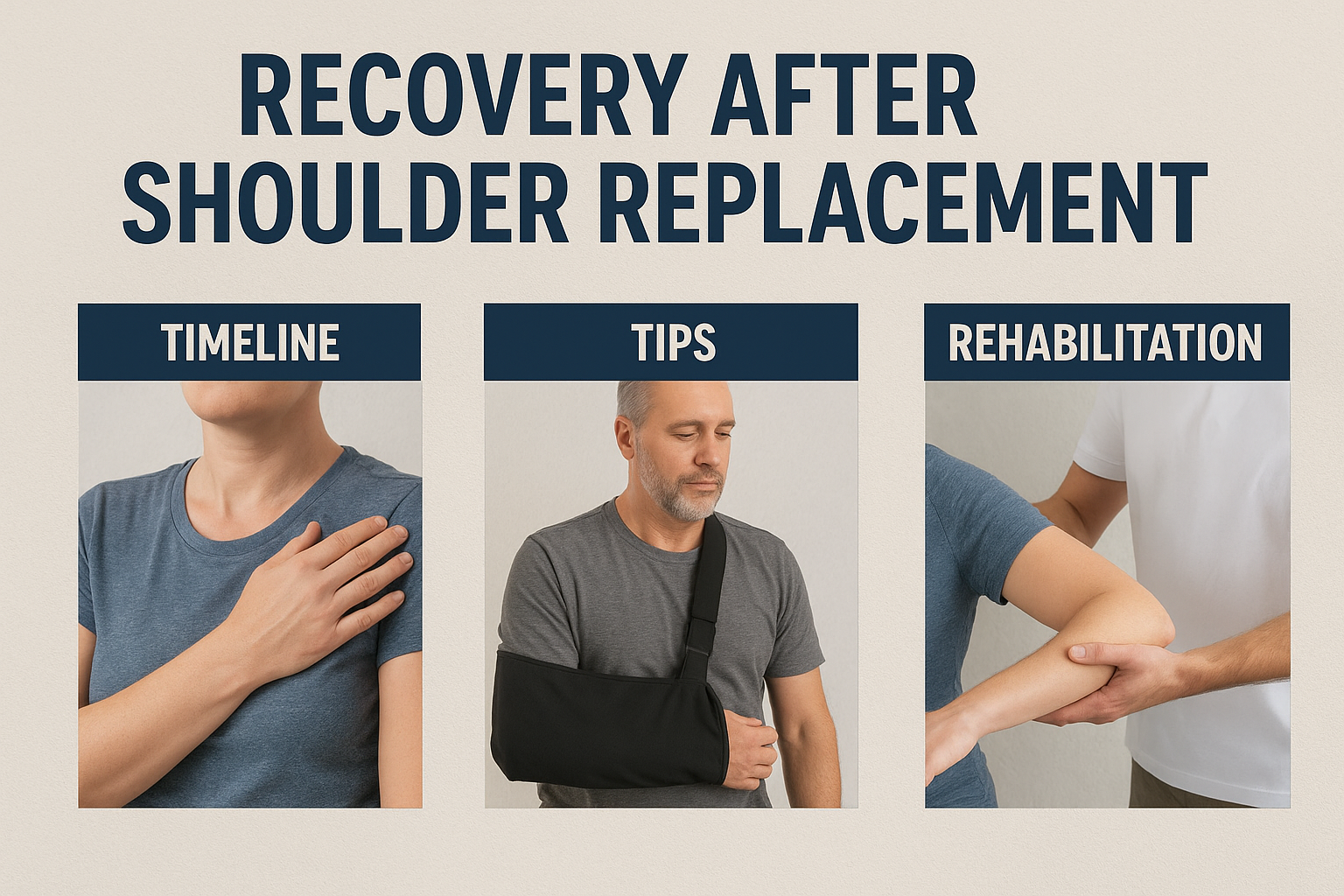Shoulder replacement surgery is a highly effective treatment for severe arthritis, fractures, or rotator cuff damage. Understanding the recovery after shoulder replacement is essential to regain mobility, reduce discomfort, and return to an active lifestyle. In this guide, we will explain the timeline, tips, and rehabilitation strategies for smooth healing.
What to Expect After Shoulder Replacement Surgery
Immediately after surgery, you will experience some pain and stiffness, which is normal. Medications and physiotherapy play an important role in controlling symptoms and starting the recovery journey.
Recovery Timeline After Shoulder Replacement
Week 1–2: Initial healing focuses on pain management and gentle movements. A sling is usually required.
Week 3–6: Physical therapy begins with passive and assisted exercises to restore range of motion.
Week 7–12: Active strengthening exercises are introduced to rebuild muscles.
3–6 Months: Gradual improvement in flexibility and strength, allowing light daily activities.
6–12 Months: Most patients achieve near-complete recovery and return to regular routines.
Essential Tips for Faster Recovery
Follow your rehabilitation plan consistently for steady progress.
Attend physical therapy sessions to regain shoulder function effectively.
Eat a balanced diet rich in protein, calcium, and vitamins for bone healing.
Practice good posture to avoid unnecessary strain.
Avoid heavy lifting until your surgeon approves advanced activities.
Role of Rehabilitation After Shoulder Replacement
Rehabilitation is the cornerstone of successful recovery. Regular physiotherapy sessions focus on flexibility, joint mobility, and muscle strengthening. These exercises reduce stiffness and restore normal arm function.
Lifestyle Adjustments During Recovery
Making small lifestyle changes can speed up healing. Use ergonomic tools for daily chores, maintain proper sleep posture, and avoid repetitive overhead activities until cleared by your doctor.
When to Consult Your Surgeon
If you experience persistent pain, swelling, or reduced mobility, consult your surgeon immediately. For expert care, consult our Dr. Harish Orthocare for a personalized treatment plan.
Conclusion
Recovery after shoulder replacement requires patience, discipline, and active participation in rehabilitation. Following your surgeon’s advice and adopting healthy habits ensures long-term results.
With proper care, most patients regain independence, reduce pain, and return to normal life within a year.

